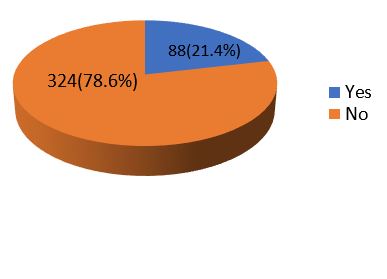Patterns and Predictors of Intimate Partner Violence among Pregnant Women Attending Healthcare Centers in Obio-Akpor, Rivers State
DOI:
https://doi.org/10.54117/sjmams.v2i1.10Keywords:
Patterns, Pregnant women, Predictors, Intimate partner violenceAbstract
Intimate partner violence though not consistent with our cultural and traditional values and beliefs as a people, is becoming rampant and this is a misnomer. Intimate partner violence (IPV) especially among women is a global phenomenon and has become a major public health concern. The researcher adopted a descriptive cross-sectional study design to assess patterns and predictors of intimate partner violence among pregnant mothers attending healthcare Centre’s in Obio/Akpor L.G.A., River’s state. A self-structured survey was utilized to gather information from 416 systematically selected pregnant mothers with a response rate of 412(99%). Data was evaluated utilizing descriptive and inferential statistics at a 5% degree of significance. Findings showed that many of the respondents ages 23 – 31years, married, with tertiary education, of Christian faith, were into business and had two children. The prevalence of IPV before pregnancy was 21.4% while in current pregnancy it was 20.1%. The most common violence act was physical 83(20.1%), followed by verbal violence 79(19.2%), emotional violence accounted for 76(18.4%), psychological violence 68(16.5%) while the least reported was sexual violence with about 57(13.8%). Domestic and financial issues were the cause of most violent experiences accounting for 19.9% and 19.4%. Statistical analysis using multinomial logistic regression showed that educational attainment (p; 0.000) and lifestyle of the husband (p = 0.000) were the socioeconomic and sociodemographic factors respectively associated with IPV. It is recommended that screening for intimate partner violence among pregnant women should be provided as uniform care during antenatal visits.

Downloads
Published
How to Cite
Issue
Section
License
Copyright (c) 2023 Israel Udo William, Chinemere Onyema, Oparanma Florence Uche, Goodluck Azuonwu

This work is licensed under a Creative Commons Attribution 4.0 International License.
